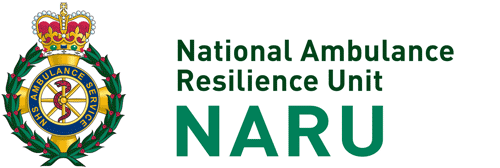Expert teams from around the world are being invited to submit research proposals to better inform the management of Ebola outbreaks so that lives can be saved. This includes research which could produce evidence to help tackle the current outbreak.
Proposals will be reviewed immediately with a view to enabling research to start as soon as possible.
Funding is being made available from a £6.5 million research initiative jointly-funded by the Department for International Development and the Wellcome Trust, and managed by Enhancing Learning & Research for Humanitarian Assistance (ELRHA).
Justine Greening said: “We are launching an emergency call for research to strengthen what we know about Ebola and how it spreads. This will help us better equip those working on the ground so they can tackle the outbreak as effectively as possible and prevent more people contracting this terrible disease.
“This work, supported by the UK, should also draw lessons for the global community on how to deal with future outbreaks of Ebola and other infectious diseases.”
Dr Jeremy Farrar said: “The gravity of the Ebola epidemic in West Africa demands an urgent response, and we believe rapid research into humanitarian interventions and therapeutics can have an impact on treatment and containment during the present outbreak. What we learn could also change the way we approach future outbreaks, providing us with tested tools and techniques that were not available to public health authorities this time.”
Jess Camburn, ELRHA’s Director, said: “The communities that are facing this terrible outbreak have the right to expect the best possible response from the international community. Research might not seem like an urgent action, but the courageous health professionals that are working to save lives and control this outbreak are in great need of better evidence. ELRHA is proud to be working with DFID and the Wellcome Trust to ensure that experienced research teams can respond to this need now.”
Funding from the Research for Health in Humanitarian Crisis (R2HC) initiative will be awarded to researchers who can provide strong evidence and analysis on the disease in areas including:
- anthropology;
- clinical management;
- diagnosis;
- disease control and prevention;
- ethics;
- health systems;
- social mobilisation;
- surveillance; and
- treatment.
The initial call for proposals closes on Monday 8 September 2014 and applications will be welcome online through this link once the embargo has lifted. Potential applicants unable to meet this deadline should contact the ELRHA office.
Notes to Editors
About R2HC The R2HC programme is the product of a strategic partnership between DFID and the Wellcome Trust, with ELRHA overseeing the programme’s execution and management. The overall aim of the programme is to improve health outcomes by strengthening the evidence base for public health interventions in humanitarian crises. The current call forms part of the £6.5m available for research on health in humanitarian crises up to December 2016 through the R2HC programme. The size and number of grants to be awarded will depend on the number of high-quality applications received that are within the scope of the call.
About DFID The Department for International Development (DFID) leads the UK’s work to end extreme poverty. We’re ending the need for aid by creating jobs, unlocking the potential of girls and women and helping to save lives when humanitarian emergencies hit.
About the Wellcome Trust The Wellcome Trust is the second-highest spending global charitable foundation, dedicated to achieving extraordinary improvements in human and animal health. We support bright minds in biomedical research and the medical humanities, including public engagement, education and the application of research to improve health. We are independent of both political and commercial interests.
About ELRHA Enhancing Learning and Research for Humanitarian Assistance (ELRHA) supports partnerships between researchers and practitioners to improve the effectiveness of humanitarian action. ELRHA promotes such partnerships through its programmes, aiming to support the production of research, innovations, and training that delivers measurable impact in the prevention of and response to global humanitarian crises.
